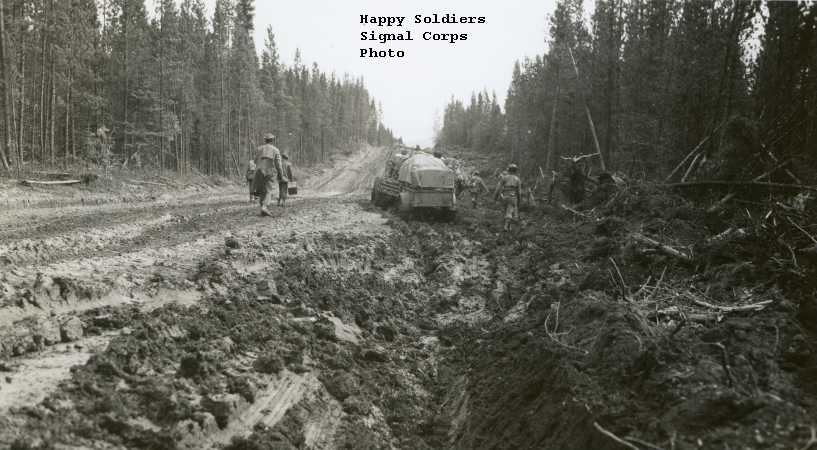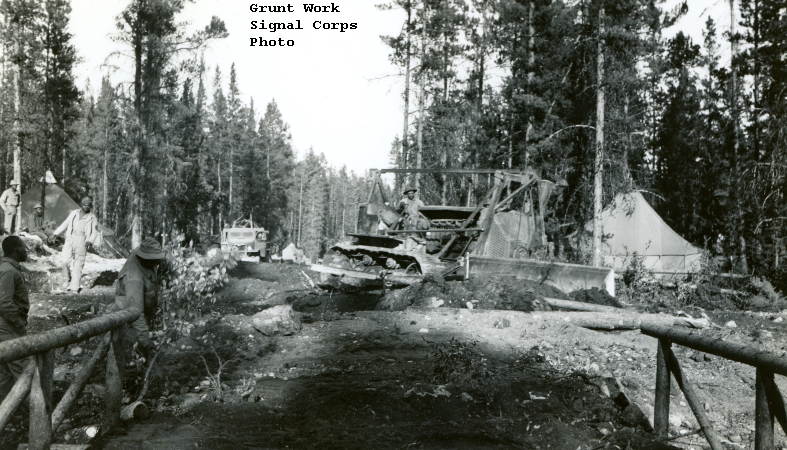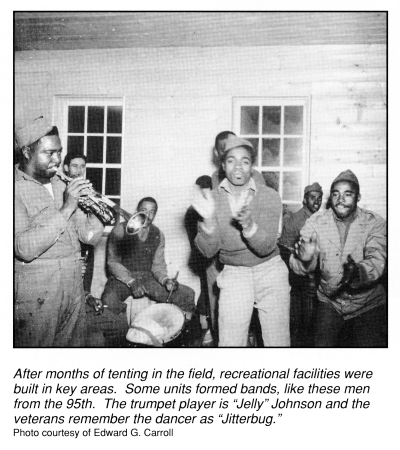
Rushed north by the Army to help in the urgent effort to build over a thousand miles of Alaska Highway through subarctic wilderness, the soldiers of the 95th found themselves with little to do. They occasionally found themselves serving as stevedores and delivery drivers for the white rookies of the 341st. More often they simply remained in camp, surrounded by mud, huddled under rain-soaked canvas.
Link to the last story in this series “O’Connor Caught a Break but Didn’t Know It”
Froelich Rainey, visiting the highway in 1942 to report for National Geographic, hitched a ride out of Charlie Lake in a convoy of supply trucks piloted by members of the 95th. His young black driver wanted desperately to be home in Virginia in the “bright hot days of his homeland. This awful country, nothing but cold rain, mud and trees.” It took them six hours to travel fifteen miles.

Colonel David Neuman, commander of the 95th exacerbated the problem. Army censors began to notice a pattern in letters from the 95th. One Pvt. Dulin, for example, wrote simply that Colonel Neuman “…was a problem.” Corporal Jonathan Welch wrote, “That old southern principal of keeping Negroes as slaves is still being practiced.”
When Lt. Joseph J. Sincavage, a white officer in the 95th, recorded his disgust in a letter to his wife, the censors brought it to command attention. Some of his fellows he told her were “dastardly punks. . .it was disgraceful.” He told her about one white officer who lolled in bed while his black platoon sergeant did his work. He ended his letter with this, “The Army works for the officer, but the colored man was his slave.”

When, back in Washington, General Sturdevent read Lt. Sincavage’s letter the ‘shit’, as they say, ‘hit the fan’. Neuman who had injured his leg and secluded himself in his tent with a bottle—no, several bottles–wasn’t demoted. The Army didn’t work that way. They sent him “home for his health”.
On July 19, Lt. Colonel Heath Twichell, executive officer of the 35th Engineers, assumed command of the 95th Engineers, and inherited their crushing morale problem.